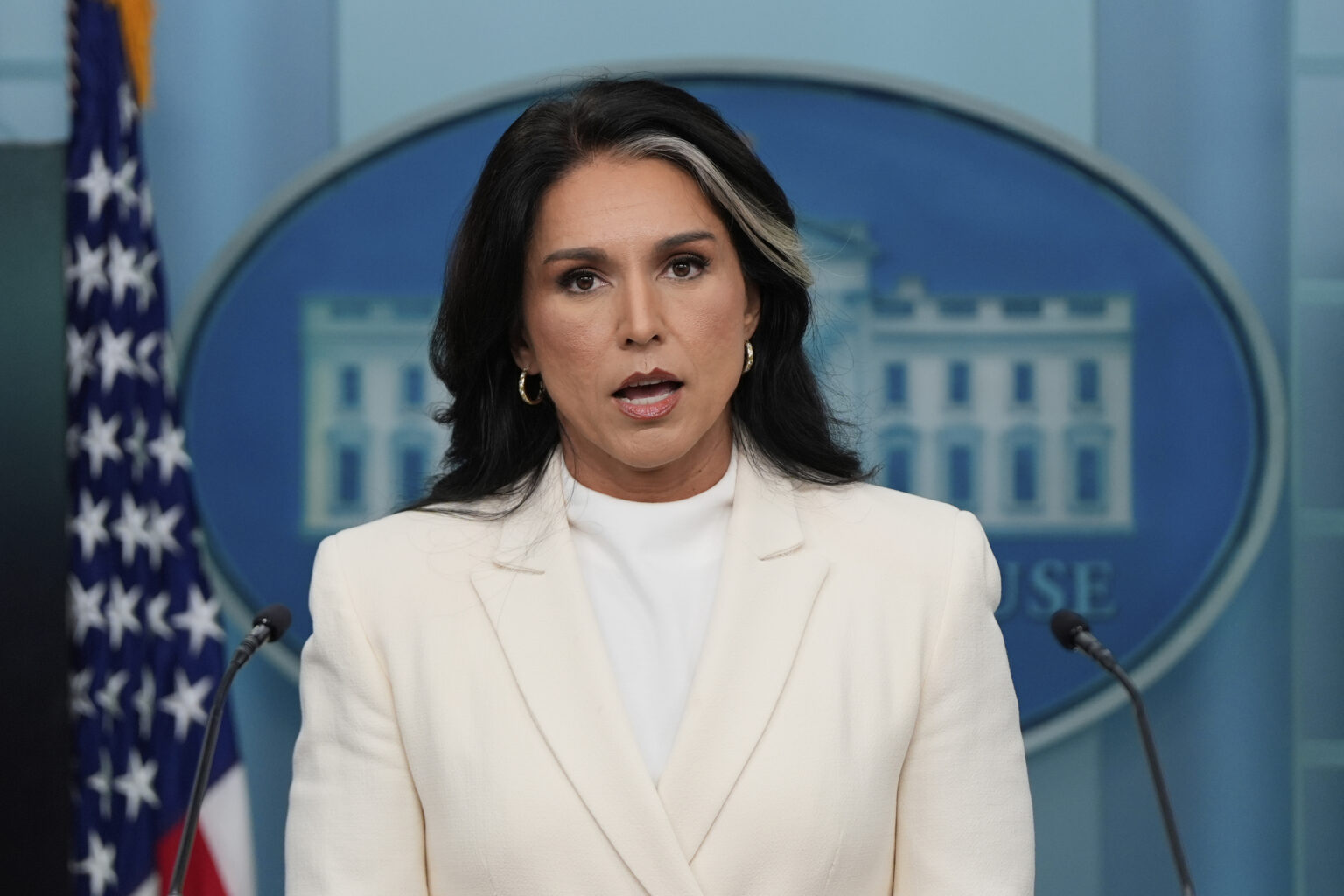President Donald Trump’s administration has said it is revoking the security clearances from 37 current and former national security officials, citing the “politicization or weaponization of intelligence.”
Newsweek contacted the Office of the Director of National Intelligence for comment by email outside of regular working hours.
Why It Matters
The action forms part of a continuing effort by the White House to penalize officials it deems hostile to its aims, and it renews debate over the use of security clearances as a political instrument.
In March, Trump revoked the security clearances from a number of his political opponents, including former President Joe Biden and his family, former Vice President Kamala Harris, former Secretary of State Hillary Clinton, former Representatives Liz Cheney and Adam Kinzinger, and New York Attorney General Letitia James.
What To Know
In a memo posted on X, formerly Twitter, Director of National Intelligence Tulsi Gabbard accused the affected individuals of “manipulating intelligence, leaking classified intelligence without authorization, and/or committing intentional egregious violations of tradecraft standards.”
She added: “Being entrusted with a security clearance is a privilege, not a right. Those in the intelligence community who betray their oath to the Constitution and put their own interests ahead of the interests of the American people have broken the sacred trust they promised to uphold. In doing so, they undermine our national security, the safety and security of the American people and the foundational principles of our democratic republic.”
The memo did not offer any evidence to support the accusations.
The memo said that the affected individuals had engaged in some or all of the following actions: “Politicization or weaponization of intelligence to advance personal, partisan, or non-objective agendas inconsistent with national security priorities; failure to safeguard classified information in accordance with applicable laws, regulations and agency policies; failure to adhere to professional analytic tradecraft standards; and other conduct detrimental to the trust and confidence required for continued access to national security information.”
The 37 people affected by the latest revocations include: Andrew Cedar, Andrew P. Miller, Benjamin A. Cooper, Beth E. Sanner, Brett M. Holmgren, Charles A. Kupchan, Christopher Center, Corinne A. Graff, Dilpreet K. Sidhu, Edward Gistaro, Emily J. Horne, Harry Hannah, Heather R. Gutierrez, Jamie S. Jowers, Jeffrey M. Prescott, Joel T. Meyer, Joel Willett, John W. Ficklin, Julia S. Gurganus, Julia Santucci, Loren DeJonge Schulman, Luke R. Hartig, Maher B. Bitar, Mark B Feierstein, Mary Beth Goodman, Megan F. Doherty, Michael P. Dempsey, Perry J. Blatstein, Richard H. Ledgett, Samantha E. Vinograd, Sarah S. Farnsworth, Shelby L. Pierson, Stephanie O’Sullivan, Thomas W. West, Vinh X. Nguyen, William J. Tuttle, Yael Eisenstate.
The memo said these individuals would have their access to classified systems, facilities, materials and information cut off immediately, and that any contracts or employment would also be terminated.
It also said that agencies are required to report to the Office of the Director of National Intelligence as soon as the revocations are completed.
Many of the individuals left the government a number of years ago, according to The Associated Press. Some worked on issues that have long infuriated Trump, including the investigation into Russian interference into the 2016 presidential election.
What People Are Saying
Director of National Intelligence Tulsi Gabbard wrote on X on Tuesday: “Our intelligence community must be committed to upholding the values and principles enshrined in the U.S. Constitution and maintain a laserlike focus on our mission of ensuring the safety, security and freedom of the American people.”
The memo said: “Intelligence community professionals must remain nonpartisan, fact-driven, and committed to truth above all else. All personnel are reminded that holding a clearance is a privilege, not a right, and this privilege is contingent upon continued adherence to the principles and responsibilities of our profession. Any betrayal of these standards compromises not only our mission, but also the safety and security of the American people.”
Mark Zaid, a national security lawyer whose own clearance was revoked by Trump, told The Associated Press: “These are unlawful and unconstitutional decisions that deviate from well-settled, decades-old laws and policies that sought to protect against just this type of action.”
Read the full article here


